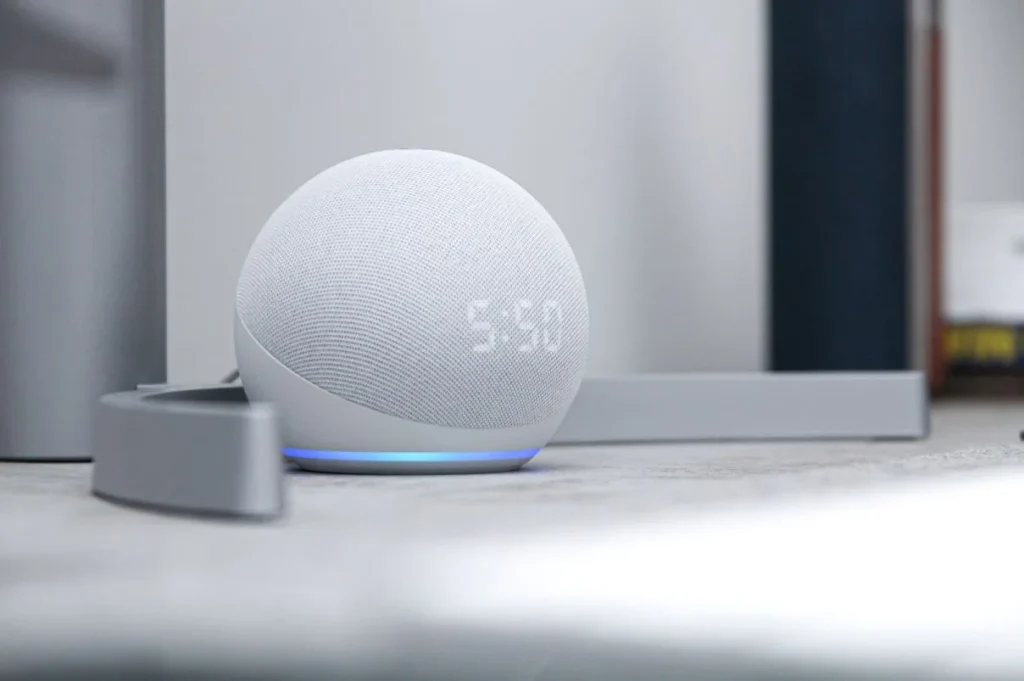Even though it has long been a cornerstone of the economy, the real estate industry has a track record for being inefficient, inefficient, and disjointed. However, due to the rapid development of technology, the real estate market is changing. Smart homes are now emerging in premium developments, such as a Cavite house and lot Adopting technology is not only a choice, but a need for the industry to adapt, grow, and offer better services to buyers, sellers, and brokers. This article will look at how technology is changing the real estate industry, from property searches and virtual tours to distributed ledgers and artificial intelligence.
What is Real Estate Industry?

Purchasing property, selling, and leasing are all part of the real estate market, which is an important part of the economy. It has a tremendous impact on both the residential and commercial industries, fostering economic expansion and offering both home and workplace to both individuals and companies. Real estate agents, brokers, builders, financiers, investors, lenders, and property management firms are important participants in the real estate market. In addition to managing properties and offering a range of services to buyers, sellers, and tenants, these specialists also arrange transactions.
Market conditions, economic developments, governmental regulations, and demographic changes are some of the elements that affect the industry. Property values and investment prospects are impacted by market demand, interest rates, and supply and demand dynamics. The real estate business has seen a rapid transformation as a result of technology, which has transformed operations and improved client experiences.
Sustainable and environmentally conscious practices are gaining importance in the real estate industry. Green building standards, energy-efficient technologies, and sustainable development practices are being embraced to reduce environmental impact, lower operating costs, and meet the demands of environmentally conscious buyers and tenants.
In summary, the real estate industry is a complex and dynamic sector that provides housing, commercial spaces, and investment opportunities. It is influenced by economic factors, market trends, and technological advancements. Embracing technology, adhering to regulations, and adopting sustainable practices is crucial for industry professionals to thrive and meet the evolving needs of buyers, sellers, tenants, and investors.
Types of Real Estate

Residential real estate is land and structures used for housing. This type of property influences the industry. In contrast, industrial or commercial real estate has land and structures that are zoned for running a company, such as a store, an office, or a factory. The residential real estate industry has also been joining the technological innovation with smart homes emerging, such as a Cavite house and lot in Vita Toscana where smart technology is integrated into the house to make living convenient for homeowners.
Commercial real estate is land that is used only for business-related activities or to house offices rather than dwellings, which would be considered residential real estate. The majority of the time, tenants lease commercial property to conduct businesses that generate cash. From a little retail space to a sizable commercial mall, this vast category of real estate can cover everything.
The provision of real estate for exclusive commercial usage is known as industrial real estate. In an industrial property, work is done behind the scenes and is rarely visible to clients. This kind of property can be used for a huge range of specific purposes, including mechanical engineering, scientific research, and package deliveries.
How Is the Technology in the Real Estate Industry?

Many people think the real estate industry is resistant to the accelerated adoption of new technologies since it has historically been a stable investment class. The temptation of risk reduction will result from this line of thinking, but I warn you to consider how technology may damage your real estate investing chances.
Internet-based giants like Amazon and others have already upended the current landscape of retail by streamlining shopping and eliminating in-person shopping. Currently, contactless shopping is undergoing rapid modifications, and the structure for a change in our relationship with retail is emerging. The housing markets for single- and multi-family homes won’t be exempt from the increasing adoption of technologies. The pandemic is hastening the broad recognition of what people value in their homes, which was already in motion before the pandemic started. Since there would no longer be an advantage in being close to the office, it is obvious that there will be a shift to tertiary cities where the average cost of living is significantly lower.
All asset classes have been affected by technology, therefore if your company strategy involves investing in a particular asset class, you need to know which business strategies or technologies offer the most risk-averse opportunities for wealth development. Innovative products, services, and industries are being created as a result of the collision of exponential technologies.
Reasons Why It Is Beneficial to Embrace New Technologies in the Real Estate Industry

Efficiency
Modern technology may automate and streamline a number of real estate-related tasks, including communicating with clients, document management, and listing properties. This automation decreases manual labor, saves time, and increases productivity in general.
Enhanced Communication
Real estate professionals can communicate with clients, coworkers, and other stakeholders more efficiently thanks to technology. It allows for instantaneous communications via real-time messaging, video conferencing, and virtual tours, enabling smooth interactions regardless of place. Better communication results in stronger relationships and better customer service.
Access to Data and Analytics
New technologies make it possible to use effective analytics tools and a great amount of data. Making educated decisions will be made easier with the use of this data to acquire insights into market trends, consumer preferences, and property prices. Analytics can be used by real estate agents to find investment opportunities, improve pricing, and create specialized marketing plans.
Virtual and augmented reality
These technologies allow for 3D representations and virtual property tours, giving potential buyers a lifelike experience without the need for in-person visits. With the use of this technology, real estate agents may reach a wider audience, draw in more buyers, and help both buyers and sellers save time.
The use of online platforms and social media
When promoting and advertising homes in the digital era, real estate agents can benefit from using online platforms and social media. Targeted advertising, search engine optimization, and social media initiatives can help real estate brokers reach a wider audience and generate more leads. Online marketing also provides helpful data about consumer preferences and behavior.
Smart Homes and IoT Integration
The rise of smart home technologies and the Internet of Things (IoT) has transformed the real estate landscape. Smart home features like automated lighting, security systems, and energy management not only enhance property value but also attract tech-savvy buyers. Integrating IoT devices can also provide valuable data on property usage, maintenance needs, and energy efficiency.
Blockchain and Smart Contracts
Blockchain technology offers secure, transparent, and tamper-proof transactions through decentralized ledgers. Smart contracts built on blockchain can automate real estate transactions, simplifying processes such as property transfers, lease agreements, and escrow services. This technology increases trust, reduces fraud, and expedites the transaction process.
Why Technology Is Important to the Real Estate Industry?

Number one, Flexibility. Real estate organizations must adjust to the implications the gig economy has for their sector since it is a compelling reality. Given that agility is a crucial requirement in this situation, businesses are already utilizing technology to accomplish things like rapidly determining a home’s market value, enabling owners to quickly sell it. It is sufficient to say that businesses are becoming more inventive in how they apply technology to meet the always-changing needs of the real estate sector.
It is also effective on a financial scale: Rent today accounts for a sizable amount of people’s incomes worldwide. Unsurprisingly, this has increased the desire for cost-effective solutions, to which technology appears to have an answer. It accomplishes this in a variety of ways, including by making it possible to lower the price of home construction. With the help of technology, they have also given businesses the ability to cater to the needs of those who are unable to purchase a home by providing services like rent to residences and etc.
Lastly, new business design. In the current environment of fierce competition, a company’s failure to innovate could spell its demise. Tech is being used by businesses to enable unique business models, including flexible leasing alternatives, end-to-end financial support for home purchases, and much more.
Real Estate Technology Trends

Technology trends in real estate are always changing as a result of advances in digital innovation and shifting consumer expectations.
Virtual and Augmented Reality
Real estate has embraced virtual reality (VR) and augmented reality (AR) technologies. They provide comprehensive property tours that let customers virtually visit homes, see updates, and get a feel for the community. By adding digital information to real-world situations, such as property details or furniture layout, augmented reality (AR) improves physical spaces.
Artificial intelligence (AI) and machine learning are transforming a number of facets of real estate.
Chatbots powered by AI expedite customer service requests and offer immediate assistance. Large volumes of data are analyzed by machine learning algorithms, leading to more precise property appraisals, individualized marketing efforts, and predictive analytics for investment decisions.
Blockchain technology and smart contracts are revolutionizing real estate deals.
Through the use of smart contracts, it provides transparent and secure property records, lowers fraud, and streamlines transactions. Land registries and property ownership records built on the blockchain provide decentralized, tamper-proof data, boosting efficiency and trust.

Property Technology (PropTech)
Solutions based on technology that is specially designed for the real estate sector are referred to as PropTech. It includes different technological advancements like software for property management, tenant portals, smart home appliances, energy management systems, and online marketplaces. PropTech solutions streamline property operations while increasing efficiency and improving tenant experiences.
Internet of Things (IoT)
The IoT links together physical objects that are equipped with sensors and software, allowing for the communication and collection of data. IoT devices are used in real estate for predictive maintenance, smart buildings, remote property monitoring, energy management, and security systems. IoT-driven insights increase sustainability, cut costs, and improve operational efficiency.
Data analytics and predictive insights are being used more and more by real estate agents to get insightful knowledge.
Experts in real estate can decide on pricing, investment plans, and property development by looking at market trends, buyer preferences, and historical data. Forecasting market circumstances and spotting investment possibilities are made easier with the help of predictive analytics.
The COVID-19 epidemic has pushed the use of remote work and flexible office settings.
By providing coworking spaces, flexible lease periods, and facilities that support remote work, real estate companies are responding to the changing demands of individuals and organizations. Flexible work arrangements are supported by technology through remote collaboration, virtual meetings, and digital workflows.
Green technology and sustainability:
As people’s awareness of environmental issues grows, sustainability has emerged as a major trend in the real estate industry. Properties are incorporating green technologies including water management systems, smart lighting, energy-efficient structures, and renewable energy sources. Green construction requirements and sustainability certifications are becoming more popular, attracting purchasers and tenants who care about the environment.
These patterns are a reflection of the real estate sector’s ongoing digital change. Adopting these technologies can improve business operations, and customer experiences, enable data-driven decision-making, and support sustainable practices. For real estate professionals to remain competitive and offer creative solutions to clients and stakeholders, keeping up with current developments is crucial.
Overall, embracing new technologies in real estate can lead to increased productivity, improved customer experiences, better decision-making, and a competitive edge in the industry. It is essential for real estate professionals to stay up-to-date with technological advancements and adapt to the changing landscape to thrive in today’s market. Technology is being embraced by the real estate sector, which is undergoing a profound upheaval. The sector is becoming more efficient, transparent, and customer-focused thanks to faster property search, virtual reality, blockchain, AI, and effective property management. Embracing these technological improvements results in a more seamless and enjoyable real estate experience for buyers, sellers, and brokers alike. The way we buy, sell, and manage properties will definitely change as technology advances, ushering in a new era of innovation and potential in the real estate sector.
Related Blog: Innovations That Would Change the Real Estate Industry


